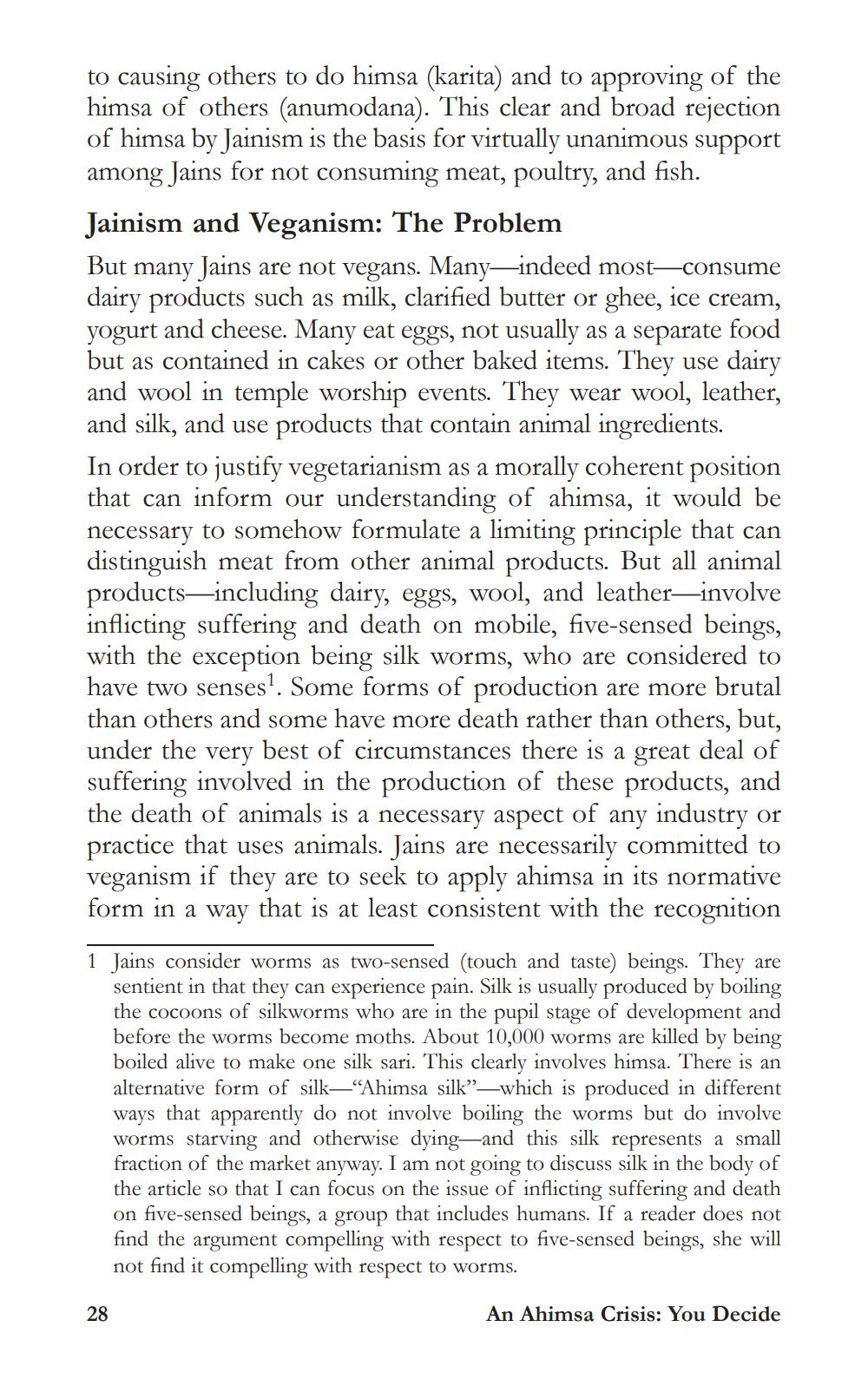________________
to causing others to do himsa (karita) and to approving of the himsa of others (anumodana). This clear and broad rejection of himsa by Jainism is the basis for virtually unanimous support among Jains for not consuming meat, poultry, and fish. Jainism and Veganism: The Problem But many Jains are not vegans. Many-indeed most-consume dairy products such as milk, clarified butter or ghee, ice cream, yogurt and cheese. Many eat eggs, not usually as a separate food but as contained in cakes or other baked items. They use dairy and wool in temple worship events. They wear wool, leather, and silk, and use products that contain animal ingredients. In order to justify vegetarianism as a morally coherent position that can inform our understanding of ahimsa, it would be necessary to somehow formulate a limiting principle that can distinguish meat from other animal products. But all animal products—including dairy, eggs, wool, and leather—involve inflicting suffering and death on mobile, five-sensed beings, with the exception being silk worms, who are considered to have two senses?. Some forms of production are more brutal than others and some have more death rather than others, but, under the very best of circumstances there is a great deal of suffering involved in the production of these products, and the death of animals is a necessary aspect of any industry or practice that uses animals. Jains are necessarily committed to veganism if they are to seek to apply ahimsa in its normative form in a way that is at least consistent with the recognition
1 Jains consider worms as two-sensed (touch and taste) beings. They are
sentient in that they can experience pain. Silk is usually produced by boiling the cocoons of silkworms who are in the pupil stage of development and before the worms become moths. About 10,000 worms are killed by being boiled alive to make one silk sari. This clearly involves himsa. There is an alternative form of silk—"Ahimsa silk”—which is produced in different ways that apparently do not involve boiling the worms but do involve worms starving and otherwise dying—and this silk represents a small fraction of the market anyway. I am not going to discuss silk in the body of the article so that I can focus on the issue of inflicting suffering and death on five-sensed beings, a group that includes humans. If a reader does not find the argument compelling with respect to five-sensed beings, she will not find it compelling with respect to worms.
28
An Ahimsa Crisis: You Decide




